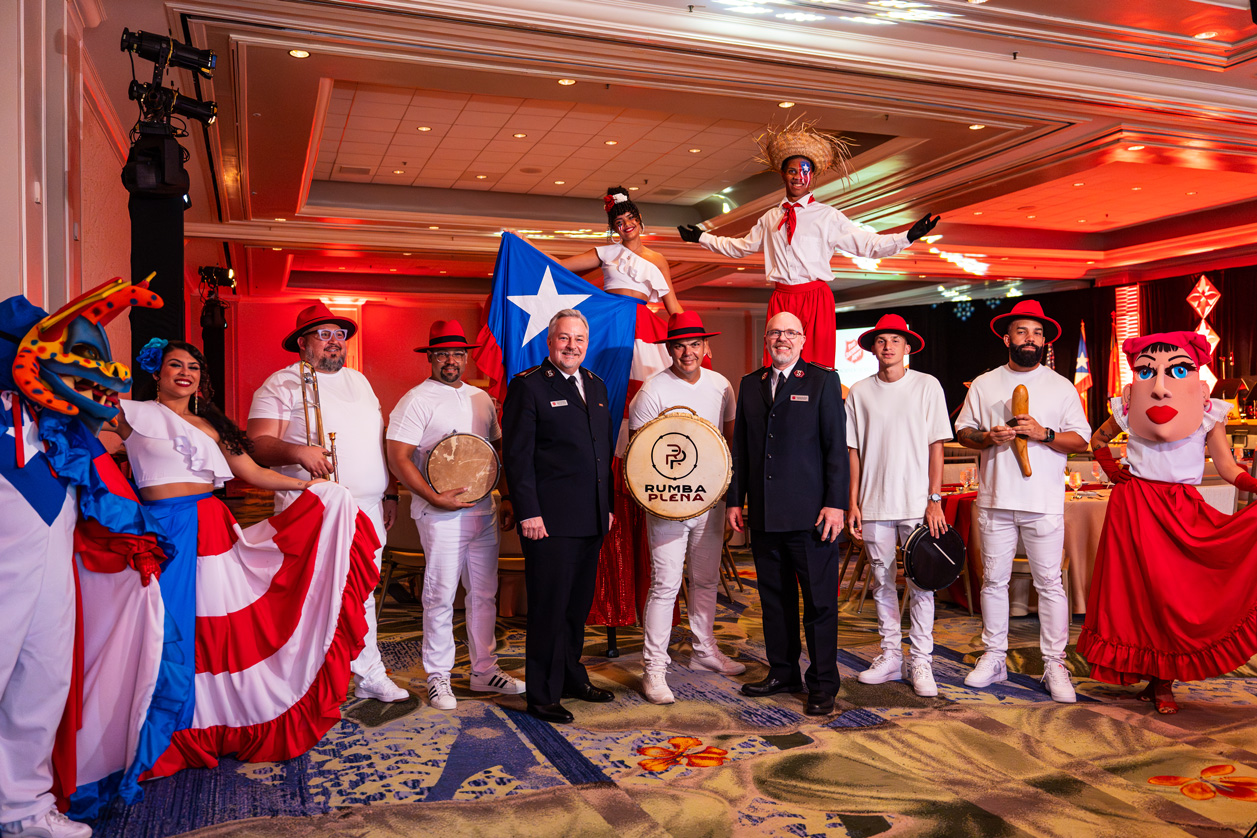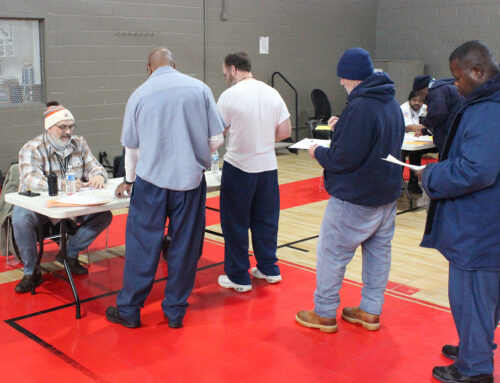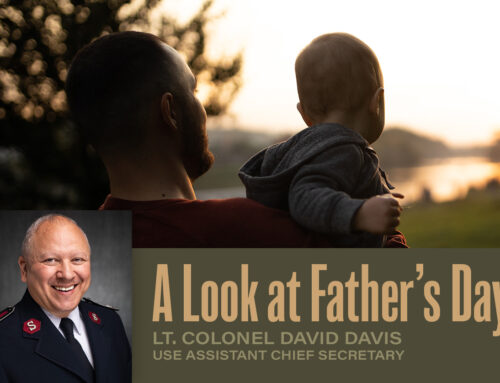National Advisory Board in Puerto Rico
by Warren L. Maye
Homelessness, a problem facing every corner of the United States today, can appear daunting. But at this year’s National Advisory Board (NAB) meeting, held in Puerto Rico in April, leaders of The Salvation Army and their many esteemed advisers embraced the Army’s role as a beacon of hope for people who are committed to winning this battle.

“In 2023 we saw a 12% rise in homelessness nationally. That was the first time in many years,” said Commissioner Kenneth G. Hodder, National Commander. He spoke in a conference room filled by territorial commanders, including Commissioners Ralph and Susan Bukiewicz, leaders of the USA Eastern Territory, and a diverse group of advisory board members, including as many as eight newly appointed members.
“The pre-existing trend for veterans’ homelessness, which was downward, was reversed in 2023, and it’s back up again,” Hodder said. “Municipalities, counties, states, and our national government are all struggling with how to address the issue of homelessness, and there are a range of responses on the table right now.”
To exit homelessness forever
There to discuss those responses was keynote speaker Dr. Robert G. Marbut, the founding president and CEO of Haven for Hope, an anti-homelessness organization that helps people transition into normal life. He has served as executive director of the U.S. Interagency Council on Homelessness and as a consultant across the nation from California to Florida.
“This is a man who knows the problem and what The Salvation Army is doing about it,” said Hodder, noting that Marbut, who is also his friend, visits as many as two Salvation Army units every week as well as other homeless facilities managed by various social service organizations.
During a Q&A, Marc Belton, NAB chair and a former executive with General Mills, asked Marbut to describe what the markers of success would look like. Marbut said, “I focus on outcomes. If your intention is to exit homelessness forever, then that is the gold standard. That’s where we want to be.”
Keeping hope alive
Among the myriad ways homeless people need help, Marbut highlighted three that he believes are critical. “If we just focused on three things—mental health, substance misuse, and job training, everywhere I go, these are the things that people talk about.”
His presentation was filled with stats, anecdotes, and optimism, but Marbut also acknowledged that in some communities, workers who feel overwhelmed by the problems of homelessness are on the verge of giving up. He encouraged The Salvation Army to be a beacon of hope for individuals and other agencies that are struggling.
“This is the fundamental role of The Salvation Army—to say, ‘we are a beacon of light,’ to say, ‘it works,’ ‘this is how you do it,’ and ‘let’s get going.’” Marbut suggested that taking such a stance is the most important thing the Army can do in communities to foster a spirit of unity and courage. He also emphasized the need for organizations such as The Salvation Army and others to collaborate rather than compete.

The ‘No Address’ movement
No Address is a full-length feature film about a group of individuals who unexpectedly find themselves homeless. To survive the mean streets, they bond as an unconventional family. They ward off a harassing gang, an unforgiving community, and local authorities as they struggle to regain control of their lives.
Marbut is the executive producer. He has a rather contentious friendship with actor William (“Billy”) Baldwin, who stars in the movie. “Politically, we don’t agree on anything,” he said. “But on this thing [homelessness], we agree.”
Inspired by true events, the film demonstrates what hope, humanity, and resilience can look like. The characters, played by Baldwin, Beverly D’Angelo, Xander Berkeley, and Ashanti, navigate the harshness of life with no physical address.
It’s a component of a five-part campaign to bring awareness to this national problem. A documentary, Americans with No Address, produced and written by Marbut, is accompanied by “No Address: An Interactive Study Guide.” There’s also a soundtrack album with the song “Skin Deep” by Rascal Flatts’ Jay DeMarcus, and a novelization.

More volunteers are needed
“We will rise as a nation as we lift others up,” says Commissioner Hodder. His words, spoken during a video clip presentation from the documentary, seemed to further inspire the NAB gathering, which included members of the Echelon Leadership Council. Echelon is the Army’s new program to encourage young people to engage as advisers, volunteers, and philanthropists.
Marbut stressed how such participation is needed to increase the nation’s capacity to help more people escape homelessness. “Double the size of every program,” he said.
Hodder pointed out that we must all do our part to win the war against homelessness, even when the call comes suddenly. “There are a number of programs in your city that involve people doing exactly what we’ve heard today,” he said during the Q&A. “Recently we were out on the streets of Washington, D.C., and we found someone who was willing to go into a shelter.
“We called the number normally designated to transport people from where they are to a shelter. But after waiting an hour, we discovered that they lost the request. So, we put that person into our car, we took them there, they got a night at a shelter, and they started over.
“It’s just basic stuff. You don’t have to have a special degree or background. We have an obligation to make these opportunities more available than they are because I don’t think there’s enough. That means ramping up our ability to secure volunteers. We clearly have to do better than we are. The programs are there. We just have to get more people engaged.”
To learn more about the No Address movement, go to noaddressmovie.com.




